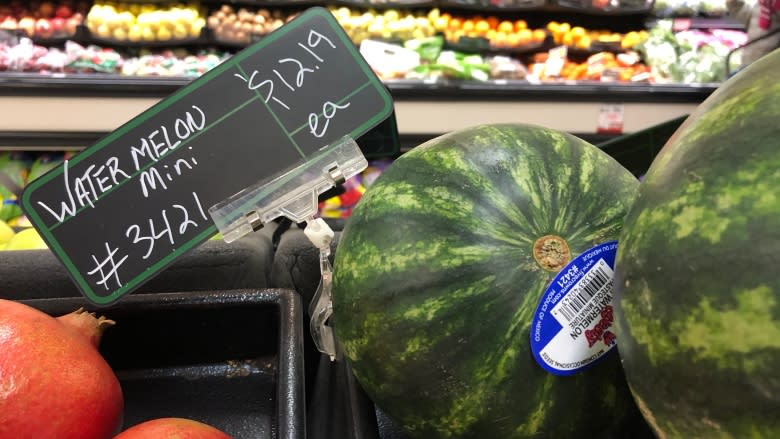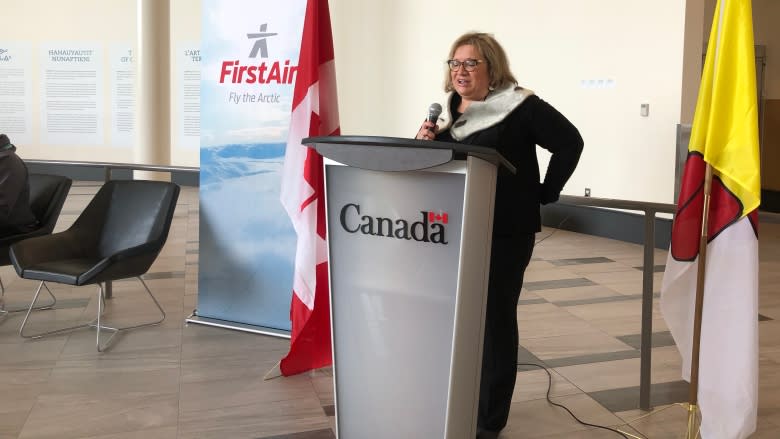Feds to unveil new food security program for the North within the next few months
The federal government will be unveiling a new food security program for the North within the next few months.
Yvonne Jones, Labrador's Member of Parliament, was in Iqaluit Tuesday to announce infrastructure funding for airport upgrades across Nunavut.
The federal government is giving $12.7 million to First Air to build a bigger and better cargo warehouse at the Iqaluit airport. The airline's current cargo facility is 69 years old — the company turned 72 this year.
Speaking to reporters, Jones said details on a new food security program aren't far away.
"We can expect that the Government of Canada will come forward with a new program around food security in the next few months," Jones said.
"In terms of giving you a definite time frame, I'm unable to do that today. But I can tell you that work is well underway to finalize what a new program will look like."
Recommendations from final reports on community consultations are being reviewed by "a working group of Northerners," Jones said. The group includes Indigenous and territorial leaders, as well as community members, she said.
First Air funding should help food prices
The money for the airport upgrades was made from the National Trade Corridors Fund — a $2 billion pool of money over 11 years, of which $400 million was set aside for trade and transportation infrastructure in the territories.
The Inuit-owned airline's application was among more than 300 the federal government received. A spokesperson for fellow Northern airline Canadian North confirmed to CBC News it did not submit an application for funding under the program.
First Air president Brock Friesen says the company has done what it can to help cut down the cost of food transportation, by flying more frequent freighters and having dedicated cargo planes rather than half-passenger-half-cargo flights.
Both Friesen and Jones said this partnership should help ease the costs of hauling food North, which they hope will see savings passed on to consumers at the checkout lines.
"We think we're doing the right things as a business to drive the costs down, and that will be reflected in what individuals pay and what businesses pay for goods and services," Frisen said.
"I can't tell you what the retailers do once they get the stuff. I can only tell you how it works for us."
Asked how the federal government will ensure this investment will see savings passed on to consumers through the retailers, Jones said the chain of command system for getting food to families is under review, too.
"One of the things we've also been doing as part of the current program and the review, is looking at that mechanism. As to whether that is the best mechanism to get those subsidies to the homes of people who need to have that affordability of food," Jones said.
"You're going to be hearing a lot more about these programs. Hopefully it comes sooner rather than later."
$22.5 million for replacing airport buildings
Another $22.5 million was also announced to replace airport terminal buildings in Naujaat, Chesterfield Inlet, Whale Cove, Kugluktuk and Kimmirut.
The Government of Nunavut had also unsuccessfully applied for funding to relocate airports in Kimmirut and Pangnirtung, a winter road from the Kivalliq region to Manitoba, the Grays Bay road and port project, and marine development in Qikiqtarjuaq.
But the airport relocations may be moot.
During his speech, Friesen hinted at soon-to-be-announced new planes for First Air, ones which he said will "alleviate the need to spend a lot of money on runway expansion and runway relocation in the North."



